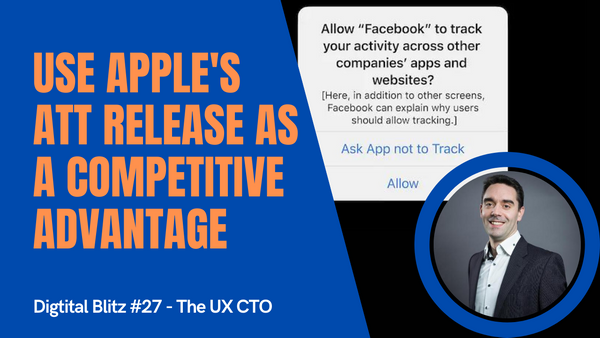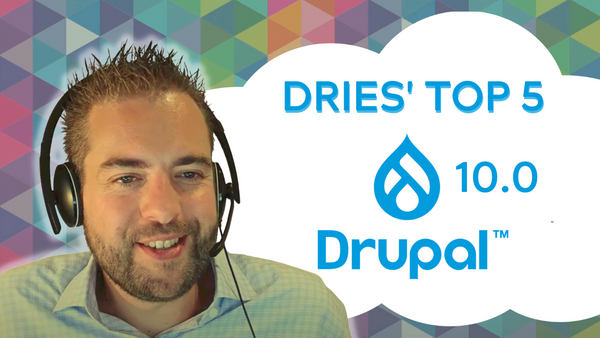Yesterday's release of the new version of the iPhone operating system - iOS 14.5 - brings the equivalent of the cookie popup that we see on most websites to native apps... well almost like that! Apple's move to enforce their new App Tracking Transparency framework - or ATT as they call it - will allow users to opt-out of tracking cookies that companies like Facebook have been using to track our activity across the web for years.
So how does it impact the advertising business model and what can you do, in your job, to benefit from this move and turn that into a competitive advantage?
Let's get to it.
ATT is good but not revolutionary
First of all, it's important to remember that this new App Tracking Transparency feature made the news this week, but it's not revolutionary. It's actually just correcting or adjusting some of the decisions that were made in the past. You see, since iOS 6 back in 2012, since then, your phone has already been sharing an IDFA, which is this code where the "FA" literally stands for "For Advertisers". They were already using it to track all of the visits across the apps and websites.
Alongside that, in following their vision towards better privacy, Apple has already taken a strong stand to disrupt this Ads tracking. Last year, in their Safari browser, Apple already blocked all third-party cookies to try and protect users' data.
Now this moves of ATT also very closely aligns with the primary pillar of all those data privacy regulations that have been growing up in the last decade, like GDPR in Europe and CCPA in the US: these days it's all about CONSENT. Apple is not blocking the tracking; it's just giving more control to its users.
The other benefits of ATT
My personal view is that web and apps would be better without ads anyway. We all prefer to watch Netflix without interruptions than watching something on TV isn't it? No one really likes ads. So whether they're more or less personalised, I don't think it's going to make much difference for most of us!
I think it's a great feature because:
- it brings more awareness to the data privacy issues, exposing even more how companies like Facebook have permeated across the whole internet, and building profile around users, so I think it's a good thing overall
- the main difference with the GDPR or cookie notice is that you can opt-out across all your apps at once if you're on an iPhone - Android users don't have that level of control. You won't have to click on every single app that you visit, like on the web.
How it can impact paid advertising
Thinking about the other side, I understand Facebook may not be able to build such rich profiles about users... but as a business, you should NOT rely solely on micro-targeting to attract customers. It's a bit of a flawed model.
I understand that if you're running paid campaigns, you want to make sure that every ad dollar you spend will be as efficient as possible and get a good ROI. I know that the B2C space heavily relies on this. However, as I've written before, I truly believe that you need to use those compliance rules, to build better and more sustainable business models.
Build sustainable business model
You need to use that to build stronger relationships with more engaged customers. If you refocus all your efforts on good SEO, which would come from a great user experience and performance, if you keep engaging with valuable content in communities where your customers are hanging out, you will continue to benefit from word-of-mouth recommendation and you will be successful online.
Aim for first-party data
Even better than that, you'll start to capture first-party data that customer willingly gave you. From there you can continue to run all your segmentation and personalisation, but it will be with data that you really earned. You have to remember the data quality of engaged customers will always be much better than the quantity of any paid traffic can bring.
If you're a business that relies on ads to earn some sort of money, it probably means that you already have enough traffic to build a more sustainable model by selling products, or some sort of subscription for your service or content.
So let me know what you think. Do you feel you will be negatively impacted by this? If so, just get in touch to continue the discussion. Don't forget to subscribe to my YouTube channel and follow me on Twitter to keep learning with me and grow your career in digital.
Until next time, stay safe and see you soon.



